Serge Marquie
Survival and Neural Models for Private Equity Exit Prediction
Nov 25, 2019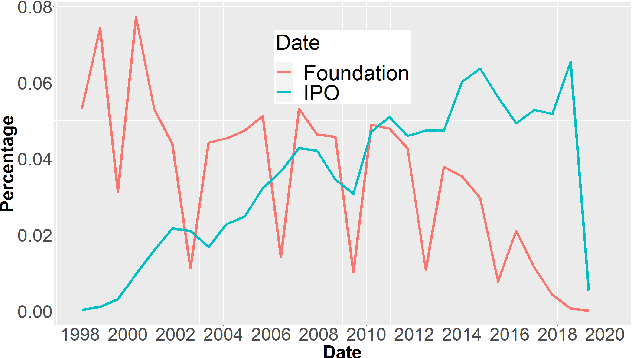
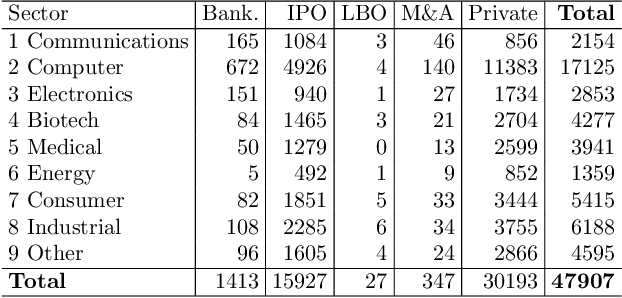

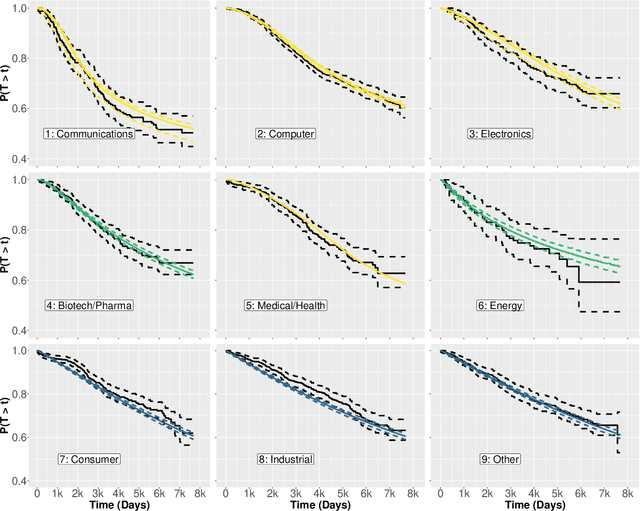
Abstract:Within the Private Equity (PE) market, the event of a private company undertaking an Initial Public Offering (IPO) is usually a very high-return one for the investors in the company. For this reason, an effective predictive model for the IPO event is considered as a valuable tool in the PE market, an endeavor in which publicly available quantitative information is generally scarce. In this paper, we describe a data-analytic procedure for predicting the probability with which a company will go public in a given forward period of time. The proposed method is based on the interplay of a neural network (NN) model for estimating the overall event probability, and Survival Analysis (SA) for further modeling the probability of the IPO event in any given interval of time. The proposed neuro-survival model is tuned and tested across nine industrial sectors using real data from the Thomson Reuters Eikon PE database.
A Classifiers Voting Model for Exit Prediction of Privately Held Companies
Oct 30, 2019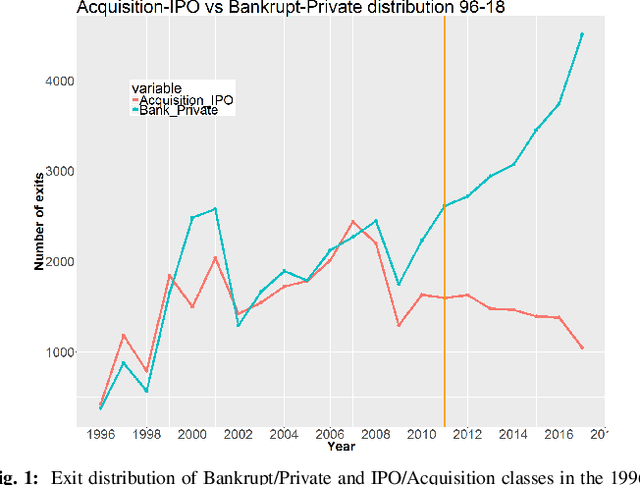
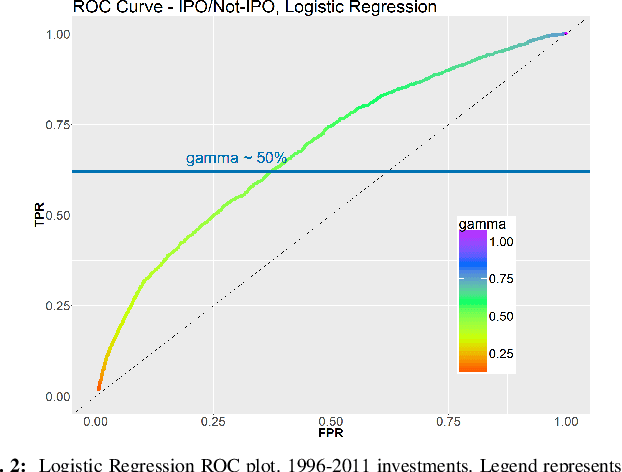
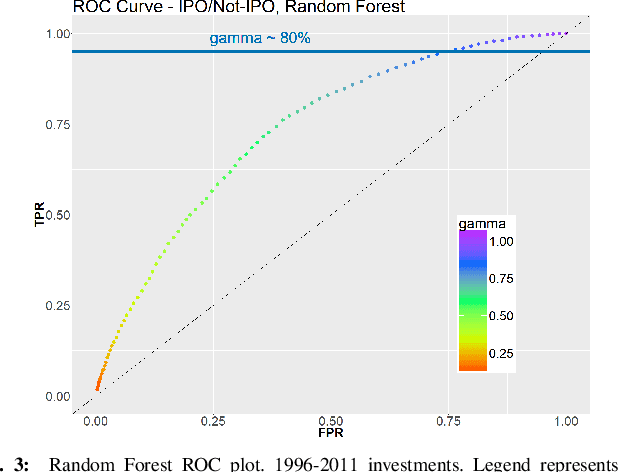
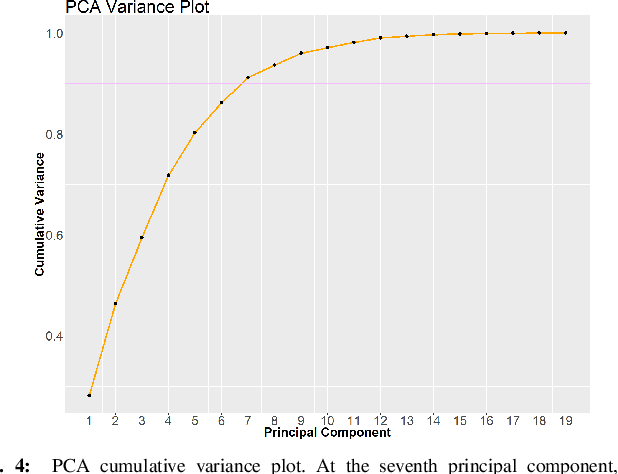
Abstract:Predicting the exit (e.g. bankrupt, acquisition, etc.) of privately held companies is a current and relevant problem for investment firms. The difficulty of the problem stems from the lack of reliable, quantitative and publicly available data. In this paper, we contribute to this endeavour by constructing an exit predictor model based on qualitative data, which blends the outcomes of three classifiers, namely, a Logistic Regression model, a Random Forest model, and a Support Vector Machine model. The output of the combined model is selected on the basis of the majority of the output classes of the component models. The models are trained using data extracted from the Thomson Reuters Eikon repository of 54697 US and European companies over the 1996-2011 time span. Experiments have been conducted for predicting whether the company eventually either gets acquired or goes public (IPO), against the complementary event that it remains private or goes bankrupt, in the considered time window. Our model achieves a 63\% predictive accuracy, which is quite a valuable figure for Private Equity investors, who typically expect very high returns from successful investments.
 Add to Chrome
Add to Chrome Add to Firefox
Add to Firefox Add to Edge
Add to Edge